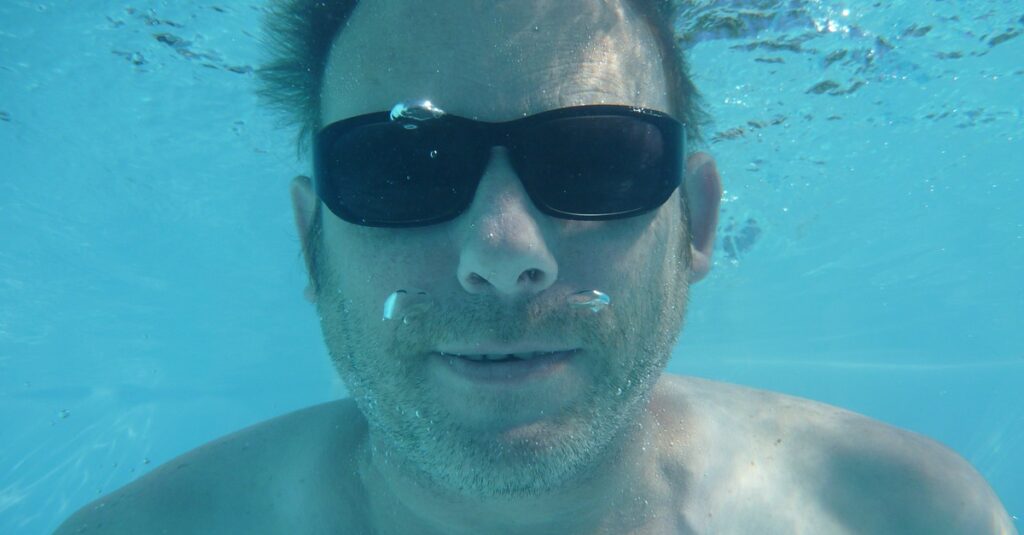

You can freedive without a mask, although it’s safer and more comfortable to choose a well-fitting low-volume freediving mask. You should never freedive with swimming goggles, or you could suffer damage to the blood vessels in and around your eyes.
As an adult, you will not be able to see underwater without a mask as well as with a mask, even if you practice and become accustomed to having your eyes open underwater.
It’s possible to freedive without a mask, and maskless diving has several advantages, it’s still safer and more comfortable to dive with a mask. Low-volume masks specially designed for freediving will give the greatest ease of use and performance rather than using a scuba diving mask.
The True Story Book of Freediving Champion Audrey Mestre and the Story of Her Death
View on Amazon: The Last Attempt (Opens new tab)


Top rated read
To learn more about low volume masks, check out our full article on why you should use a low volume mask for freediving (opens new tab).
If you find your freediving mask uncomfortable, or you’re tired of having to equalize the air pressure inside your mask during a dive, you could be wondering whether you can do without a diving mask. We tell you more about freediving without a mask and what you can expect.
Can you freedive without a mask?
You can freedive without a mask and going without it could have a number of potential benefits including:
- saving air since you don’t need to exhale slightly into the mask on descent to equalize pressure,
- no risk of mask squeeze,
- reducing drag as you move through the water,
- greater comfort, freedom and focus, especially for those who find masks constricting or irritating,
- potentially increased activation of the mammalian diving reflect (MDR) which triggers more efficient use of oxygen and other submersion optimized physical processes.
At the same time, diving without a mask carries risks, most importantly vastly reduced vision and inability to perceive hazards or judge distances as well as when wearing a mask. This could reduce your safety and enjoyment in the water and wearing a mask is therefore recommended. Opening your eyes underwater may also irritate your eyes, especially if you’re not used to it.
Can you freedive with swimming goggles?
You should not attempt to freedive with ordinary swimming goggles. The air held inside each eyepiece will be increasingly compressed as you descend, creating a vacuum which exerts suction on your eyes. This force can rupture blood vessels inside your eyes and the surrounding tissues, a condition commonly known as mask squeeze.
Unlike with a mask, the diver’s nose is not connected to the goggles’ eyepieces and they cannot therefore exhale a small amount of air to equalize air pressure.
In recent years some specialist freediving goggles have been developed. The eyepieces of these goggles contain a flexible silicone membrane, along with small holes which allow water to enter from the side under pressure. Entry of water makes the membrane expand as the diver descends, pushing towards the eyes, creating a self-equalizing system as the air inside the goggles is compressed.
While not yet widely available in shops, these freediving goggles have reportedly been tested, including in competition, and found reliable to 100m depth.
Can you see underwater without a mask?
Most people cannot see clearly underwater without a mask. The human eye works by receiving light and transmitting the pattern of light perceived to the brain for processing. When light travels through water it bends at an angle and the human eye is unable to focus correctly. This makes our vision blurred and unfocused when we try to look at things underwater.
At the same time, there is evidence to indicate that children raised in a swimming and diving environment (e.g. traditionally, in Thailand’s Moken tribe) can develop adaptations in their eyes that enable them to see just as well underwater as on land. Adult eyes do not possess the same degree of accommodation and cannot be trained to the same extent.
Opening your eyes underwater without a mask could also be very uncomfortable in waters at low temperatures, or where the pH (level of acidity or alkalinity) is very different to that of the human eye (normally neutral, between 7.0 – 7.3).
